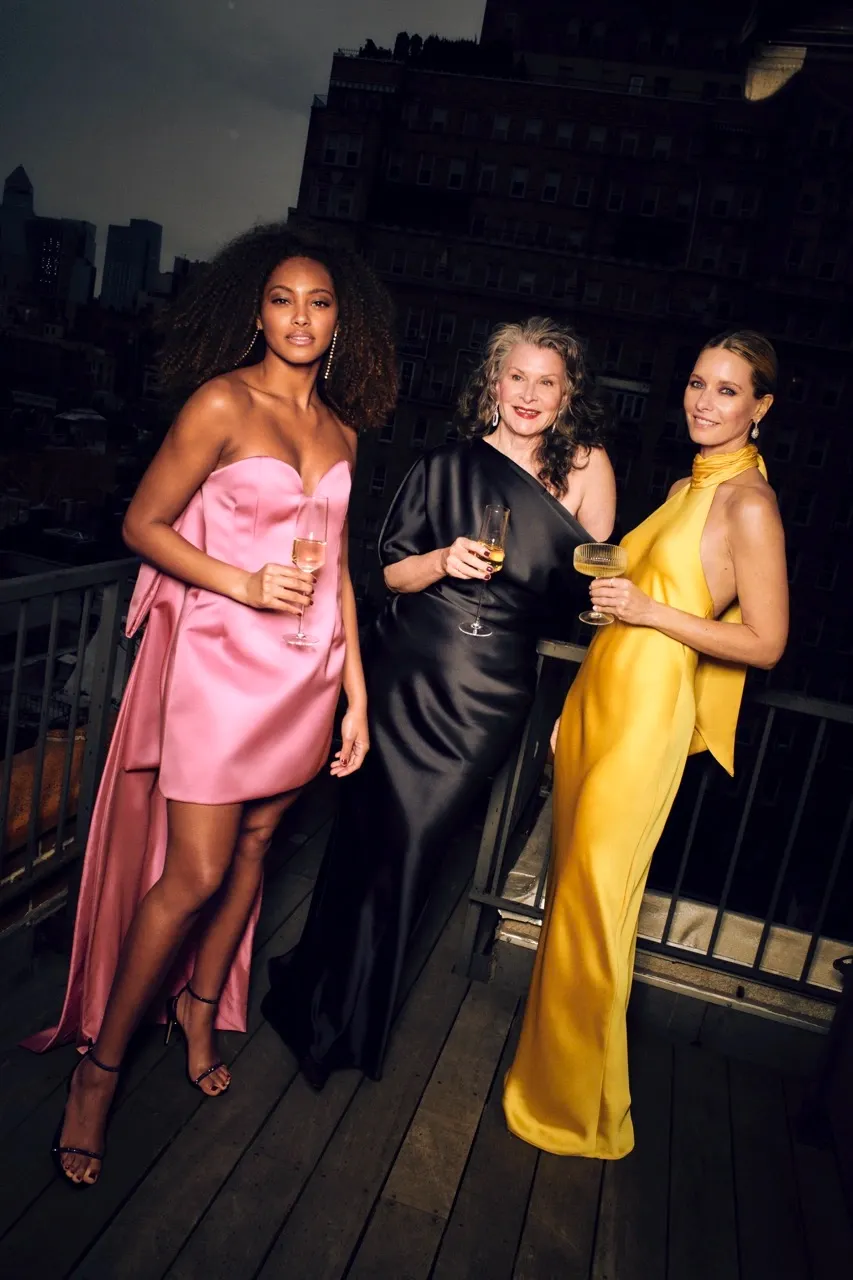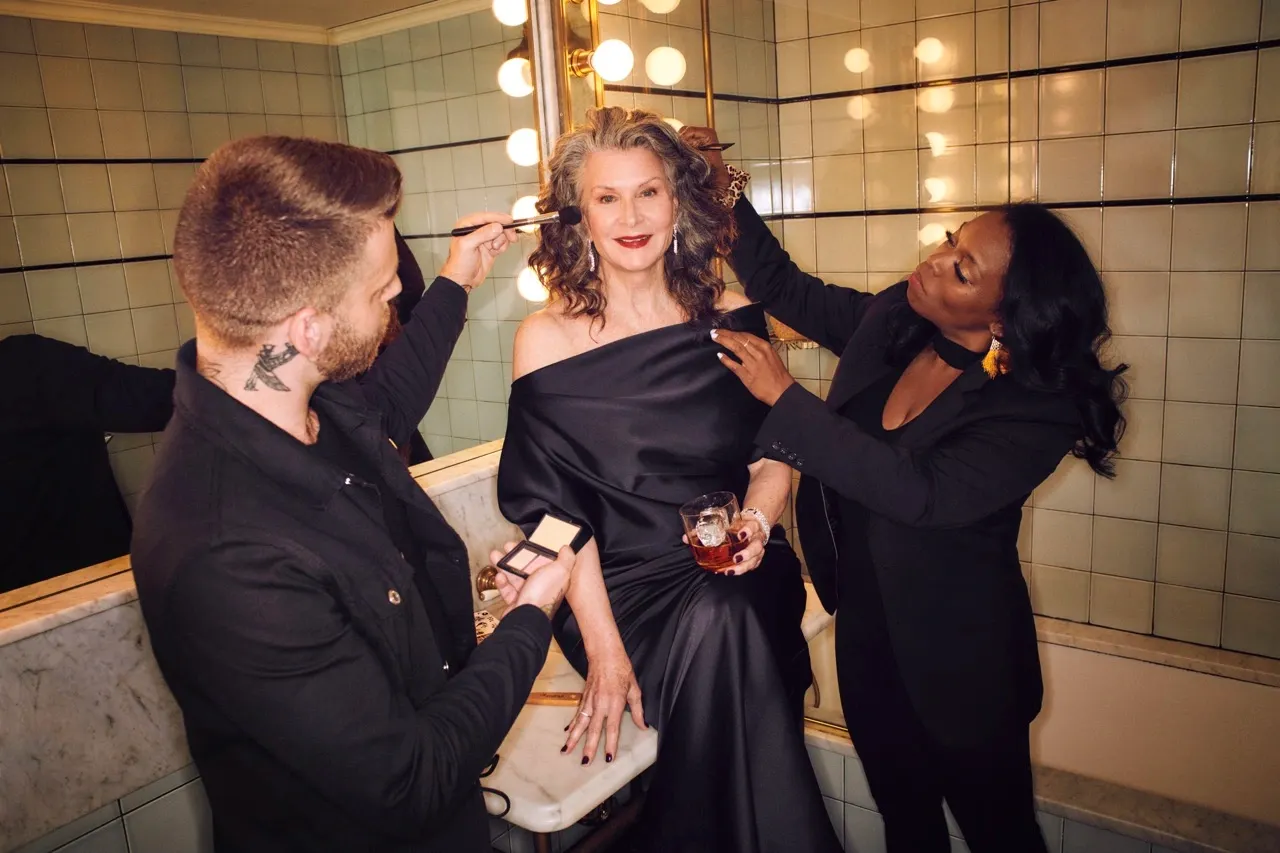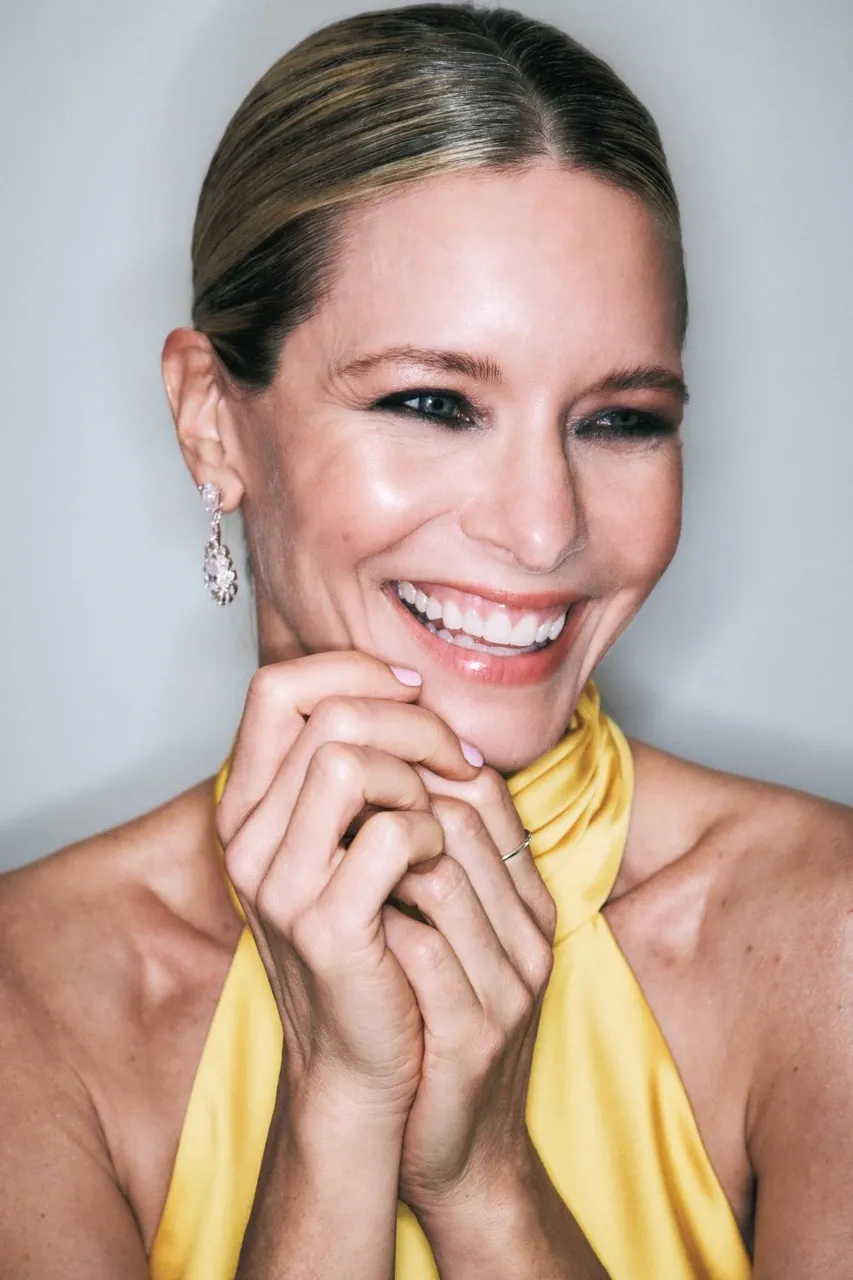Planning a wedding involves countless details, but few are as personal and visible as your bridal look. Every bride wants to feel beautiful and confident walking down the aisle, and a key step to achieving that is the bridal makeup trial. Think of this trial as a makeup consultation for brides, a dedicated session to design and test your wedding day look ahead of time.
Why a Bridal Makeup Trial Is Essential
Every bride has a vision of how they wants to look on the big day. A trial makeup session helps turn that vision into reality under stress-free conditions. Beauty professionals often liken the bridal trial to a rehearsal. A relaxed opportunity to discuss your ideas, test out the hair and makeup, and tweak any details so it’s perfected long before you say “I do.” There are numerous advantages to doing a trial run of your wedding makeup:
- Avoiding day-of disasters: The last thing you want on your wedding morning is to discover that a foundation doesn’t match your skin or that you hate the way a particular eyeliner looks in photos. A trial lets you experiment and catch these issues in advance. You’ll have time to adjust colors, switch out products, or rethink styles well before the pressure is on. This proactive testing means no scrambling or disappointment during the wedding preparations.
- Testing for wear and comfort: A trial isn’t just about how makeup looks initially, but also how it holds up. You can wear the trial makeup for hours afterward to see if the foundation oxidizes, if your skin gets oily, or if certain products irritate your skin. For instance, you might learn that a setting spray is essential to keep your look intact through dancing and happy tears. By “road-testing” the products, you ensure everything used on the wedding day will be comfortable and long-lasting.
- Building confidence and easing nerves: One huge benefit of doing a makeup trial is peace of mind. You’ll know exactly what to expect on the wedding day because you’ve seen the final look on yourself already. This can significantly reduce stress. Instead of worrying that your makeup might not turn out as hoped, you can feel confident that you’ve settled on a look you love. Many brides find they can relax and enjoy their morning-of preparations more, knowing they are in good hands and there’s a plan in place for their beauty look.
- Establishing trust with your artist: The trial is also a chance to get to know your makeup artist. You can measure their style and personality and ensure you feel comfortable with them. Clear communication during the trial fosters trust. By the wedding day, you’ll have an established rapport, making the getting-ready experience much smoother. If something wasn’t quite right in the trial, you can discuss it so the artist is fully aware of your preferences. This relationship-building is invaluable, as you need to feel at ease and understood by the person in charge of your face on such an important day.
- Finding the right artist (if you haven’t already): If you haven’t yet booked your beauty vendor, a trial can help you decide who’s the best fit. It’s perfectly acceptable to do a makeup trial for the wedding day with one or two different makeup artists when you’re in the selection process. You might love an artist’s portfolio online, but a trial will reveal whether their style matches your expectations and whether they can execute the look you want. It’s an added expense to consider, but finding a perfect match in skill and personality is worth it. After all, you’ll remember your wedding photos for a lifetime, so you want a look created by someone who gets you.
The makeup trial plays a pivotal role in your bridal beauty plan by ensuring you look exactly how you envisioned and feel comfortable and beautiful on the day. It’s a small investment of time that pays dividends in confidence and peace of mind on your wedding day.

When to Do a Wedding Makeup Trial
You may wonder when to schedule a wedding makeup trial during the planning process. Timing is essential. Schedule it too late, and you risk rushing any changes; schedule it too early, and your preferences or even your skin might change by the time you tie the knot. Book your makeup trial about three to six months before your big day, allowing ample time to perfect the look and make any necessary adjustments. Keep in mind some flexibility around this guideline:
- Give yourself time, but not too much: Scheduling a trial 2–3 months ahead is a common approach. At that stage, you’ve settled on the style of your gown and the formality of your event, which are key contexts for your makeup. Additionally, your skin tone and hair color will be similar to what they’ll be on the day. Some brides conduct trials as early as six months or more in advance, especially if they coordinate them with engagement photos or bridal portraits. This can work if needed, but note that tastes can change over such a long span. If you book very early, there’s a chance you might want a completely different look by the time the wedding comes, which could necessitate a second trial.
- Coordinate with other milestones: One smart strategy is to schedule your trial before a special event like your engagement photo shoot, bridal shower, or bachelorette party. This way, you get to enjoy a professional makeover for that occasion, and you also test how the makeup looks in photos and lasts through hours of wear. If the trial makeup holds up nicely during an engagement shoot or party, that’s a great sign it will perform well on the wedding day too. And if it doesn’t, you still have time to tweak things.
- Have your attire details set: Try to have key pieces of your bridal look decided (dress style, veil, accessories, jewelry) before the trial. Knowing whether you’ll be wearing, say, a vintage lace veil versus a modern crystal hairpiece might influence the makeup vibe. Your makeup artist can tailor your look more effectively if they understand the entire vision. For example, a boho outdoor wedding might call for a softer, dewy makeup, whereas a black-tie evening gala might inspire a bold, elegant look. It helps to share these details during the trial so the makeup can complement your overall aesthetic.
- Avoid last-minute trials: Try not to push your trial to the final couple of weeks before the wedding. In that last stretch, your schedule will be hectic with final fittings, confirmations, and maybe high emotions. Doing the trial very close to the date leaves little room for error or changes. Additionally, any skin reactions to new products will need time to subside. Give yourself at least a few weeks' buffer after the trial to implement changes or do a re-trial if absolutely necessary.
Mark it on your calendar alongside other pre-wedding to-dos, like dress fittings and hair trials, as an integral part of your timeline. This ensures your bridal beauty plan stays on track and you’re not scrambling at the last minute.
Booking a Wedding Makeup Trial
Selecting the right makeup artist is a crucial part of your wedding planning, and ideally, it happens before you book the trial. If you already have a favorite artist or a team. Some brides go with on-demand beauty services like Glamsquad; you’ll want to secure them early and then schedule the trial in advance of the big day. On the other hand, if you’re still searching for “the one” in terms of beauty professionals, a trial can double as a makeup consultation for brides to find that perfect match. Start by researching bridal makeup artists in your area well ahead of time. Look at portfolios on their websites or social media. Please pay attention to whether their signature style aligns with what you want (natural vs. glam, bold colors vs. neutral palettes, etc.). Read reviews from other brides, as reliability and personality are just as important as technical skill when someone will be working closely with you on a busy morning.
If you have a few artists in mind and can’t decide, it’s perfectly acceptable to set up trials with more than one. This hands-on approach lets you compare their work directly on your face. You’ll get a sense of their technique and how effectively they communicate. In fact, industry pros advise that if you’re choosing between a few providers, you absolutely can book multiple trials to see who best meets your needs. When contacting potential makeup artists or beauty companies, ask about their trial services. Many professionals offer a dedicated trial session as part of their bridal package or as an add-on. Some artists have a policy where the trial is included (or discounted) if you officially book them for the wedding; others charge separately, no matter what. Clarify this upfront so you understand the commitment. It’s also a good idea to ask how long the trial will be and what it includes. Some might be willing to try a couple of different lip colors or slightly varied eye looks within one session, whereas others stick strictly to one look. Knowing this helps you manage expectations.

How to Prepare for Wedding Makeup Trials (Pre-Wedding Checklist)
Think of this as a mini rehearsal, not just for your look, but for your planning skills too. Below is a pre-wedding makeup checklist to help you prepare for your trial day. Knowing what to bring to a wedding makeup trial and how to arrive will ensure the session goes smoothly and effectively. Here’s how to prep and what to have on hand:
- Schedule smartly: Avoid scheduling your trial during a time when your skin is in an unusual state. Don’t book it the day after a heavy peel, laser treatment, or anything that leaves your face red or sensitive. Also, if you plan to get a spray tan for the wedding, consider getting a light trial spray tan before the makeup trial so you and the artist can see how your foundation matches your tanned skin. The goal is to arrive at the trial with your skin tone and condition as close as possible to what they will be on the wedding day.
- Arrive with a clean, moisturized face: On trial day, cleanse your skin and apply your usual moisturizer (and SPF if it’s daytime). Unless instructed otherwise by your artist, come makeup-free so that you’re a blank canvas ready to go. If you have a hair trial the same day, generally have your hair clean and dry as well. Do not show up in full everyday makeup expecting the artist to remove it – that wastes time. However, if there’s an aspect of your daily makeup that is crucial to you, you could do one eye as an example for your artist, or show photos of yourself when you loved your makeup.
- Wear something similar to your dress neckline: It helps to wear a top that mimics the color or style of your wedding gown. A white or ivory top if your dress is white, or a strapless top if your gown is strapless. This isn’t mandatory, but seeing the makeup against a color similar to your dress and with a similar amount of skin showing can help you visualize the final outcome. The color of your clothing can reflect on your face, so it’s useful information for makeup balance. Additionally, if you already have your veil or any hair accessories or jewelry, bring them along to try on with the completed makeup look. It will make the trial feel more authentic and let you see if the makeup harmonizes with these pieces.
- Bring inspiration photos: One of the most important answers to what to expect at a wedding makeup trial is visual references. Compile a small collection of images that capture the makeup style you want. This can include celebrities on the red carpet, models from styled shoots, or real brides featured in magazines and on Pinterest. Focus on photos where the model’s complexion or features resemble yours for a realistic idea of how it might translate.
- Bring your own makeup bag (optional): It may sound odd since you’re hiring a professional, but bringing your everyday makeup kit or at least a few of your favorite products can be helpful. This gives the artist insight into what you’re comfortable with. For example, if you must use a specific foundation because only it agrees with your skin, or you have a signature lip color you’re considering for the wedding, let them know. While the artist will have a professional kit, knowing your preferences can guide product choices. They might incorporate some of your items if appropriate, or they’ll at least understand your style better. If you have any makeup allergies or strongly dislike certain products, now’s the time to share that and even show what you currently use safely.
- Pack oil blotting sheets and tissues: Trials can involve tears. It’s good to have some tissues on hand just in case you get emotional or need to blot your eyes. Oil blotting sheets are useful a couple of hours after application to gently dab away any shine and assess how the makeup looks without powdering. This simulates how you might maintain your face on the actual day.
- Take notes or have the artist note details: It might not be something you physically bring, but come prepared to record the products and shades used, especially if you’re the one providing any products or if you might need to replicate parts of the look yourself. Many makeup artists will write down a face chart or product list and keep it on file for your wedding. If they don’t offer that, jot down key items or take a quick photo of the products laid out. This information is helpful if, say, you decide to buy the exact lipstick for touch-ups or want the same falsies for consistency.
- Bring a friend (with discretion): If you feel you want a second opinion, you can bring one trusted friend or family member. Make sure it’s someone who understands your preferences and won’t impose their own style on you. Their role is mainly to give you confidence and perhaps take some photos for you. Keep the entourage small; too many opinions can complicate what should ultimately be your decision. It’s also totally okay to go solo – the artist is there as your professional guide, and sometimes one-on-one is the best way to focus on what you want.
- Plan to spend some time afterward: Don’t schedule anything immediately after your trial that would prevent you from wearing the makeup for a while. If possible, plan a date night or attend an event that evening to put the makeup through its paces. This way, you can observe how it looks and feels after 4, 6, 8 hours. Pay attention to any issues – did your eyes start watering from the lashes? Did the foundation separate on your nose? Note these and inform your artist later. If nothing else, enjoy looking fabulous for the rest of the day! You’re already dolled up, so take advantage of it.
Preparing well for your trial ensures that you and your makeup artist can focus on creativity and fine-tuning, rather than dealing with avoidable hiccups. It sets a professional tone for the session and signals to your artist that you’re serious about achieving the perfect look.
How Much is a Wedding Makeup Trial?
Budgeting for your beauty needs is part of wedding planning. The wedding makeup trial cost can vary quite a bit depending on your location, the artist’s experience, and what’s included. In the United States, you can typically expect to pay anywhere from about $50 up to $200 for a makeup trial, and experts advise that the trial fee generally shouldn’t exceed half the price of your actual wedding day makeup session. In other words, if a makeup artist charges $300 for day-of bridal makeup, a trial might be around $150 or less. This is a rule of thumb, not a hard law, but it’s a standard pricing approach.

Remember that booking wedding makeup trial services is about making you feel amazing. It’s one more way to take care of yourself amid all the planning chaos. With your trial-tested look and a clear plan, you’ll walk into your wedding day radiating confidence and beauty. And when you look back at your photos, you’ll be grateful you took the time to perfect your bridal style in advance. In the grand scheme of wedding preparation, the makeup trial is a small moment that can have a significant impact on your overall bridal experience – truly a cornerstone of your bridal beauty plan.
Sources:
- Brite Beauty – “Why a Bridal Trial is Necessary”britebeauty.com
- Junebug Weddings – “How To Make The Most of Your Wedding Hair and Makeup Trial”junebugweddings.com
- Beauty Brigade LLC – “What is a Bridal Trial and Why Should I Have One?”beautybrigadellc.com
- Jewel of Noor Glamour Room – “Bridal Makeup Trial Guide: What to Expect & How to Prepare”jewelofnoor.com
- Brides Magazine – “Everything You Need to Know About Booking a Hair and Makeup Trial for Your Wedding”brides.com

